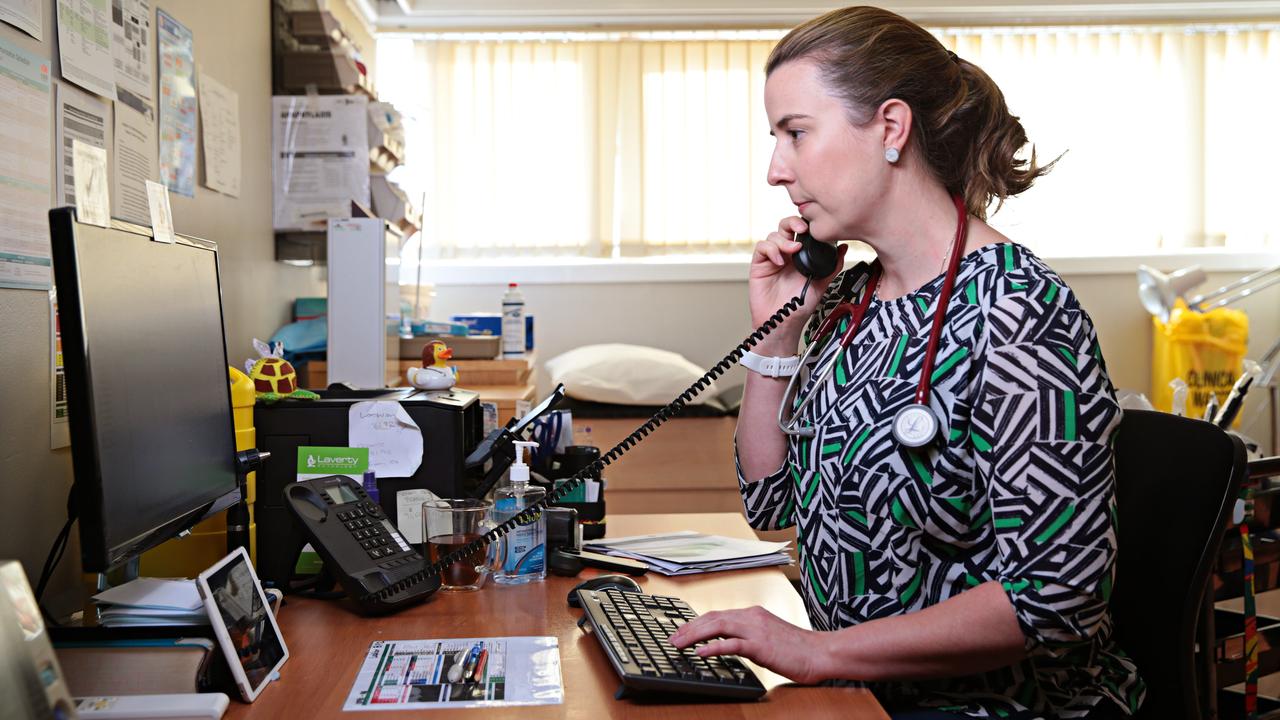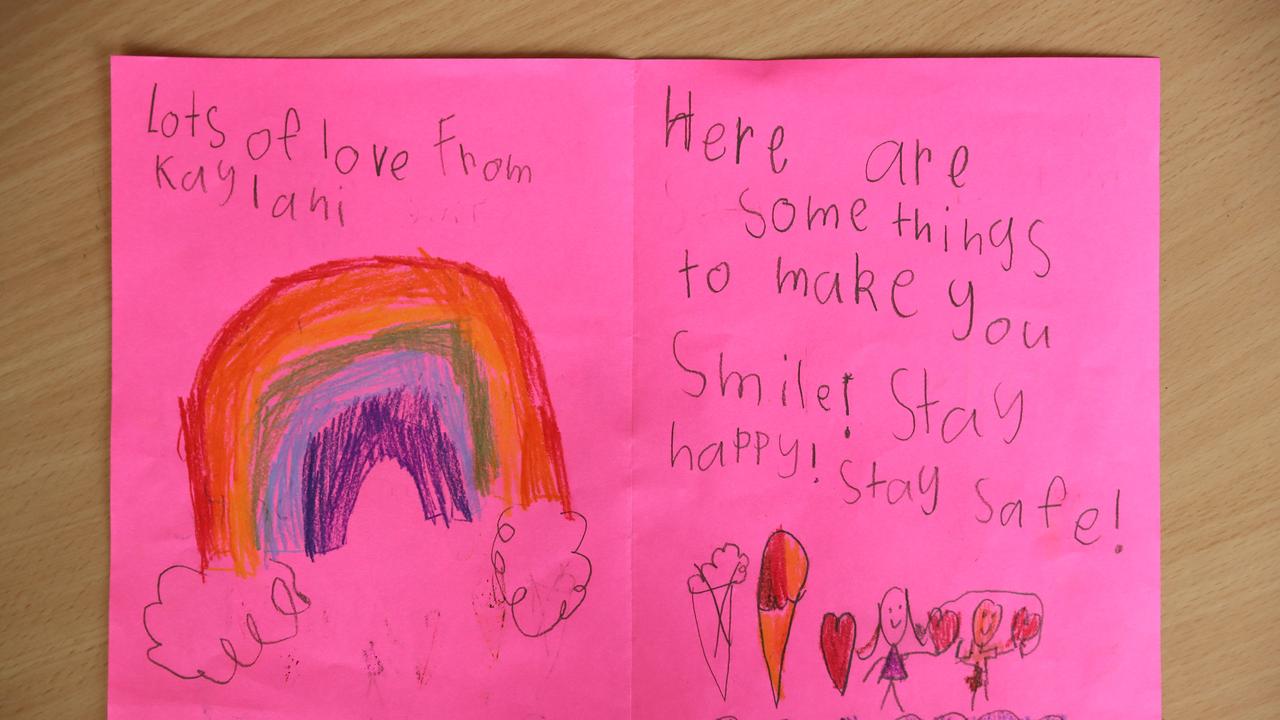Coronavirus Australia: How to get a mental health plan to see a psychologist or counsellor
Seeing a therapist for the first time requires obtaining a mental health plan with the help of your GP. Here’s how to get one.
Coronavirus is having a significant impact on the mental health and wellbeing of Australians, with experts warning of a looming crisis due to lockdowns, job losses and social isolation.
Presentations to psychologists and support services are up sharply since COVID-19 broke out and people struggling to cope are urged to seek help.
But how do you go about seeing a mental health professional, particularly if it’s for the first time?
Dr Louise Stone is a clinical associate professor at the Australian National University’s Medical School, and said the first step is to visit your GP.
“Under Medicare, you can already access 10 subsidised sessions per calendar year with a registered psychologist, social worker or occupational therapist,” Dr Stone explained in an article for The Conversation.
The Federal Government also announced an additional 10 sessions for anyone in a lockdown area under a public health order, which currently includes all of Victoria.
“But to get access to these sessions, first you need to get a mental health treatment plan from your GP,” Dr Stone said.
“This involves an assessment of your physical and mental health, and a discussion of your particular needs. The GP then helps you decide what services you need.”
RELATED: Follow our latest coronavirus updates
It’s a relatively straightforward process and generally takes about 30 minutes to complete, and the GP can help you find the most appropriate mental health professional to see.
At the end of your appointment with the doctor, you’ll receive a copy of the mental health plan and it’ll also be sent to your therapist of choice, she explained.
“All GPs who write mental health treatment plans have undergone additional training in mental health. There are also plenty of GPs with further interest and expertise in this area.
“It can be helpful to ask for recommendations from friends and family if you are unsure who to see.
“You will need to make the appointment with the therapist, but GPs or practice nurses will often help make this appointment for patients who are feeling too unwell to manage this phone call.”
If you’ve seen your GP in person in the past 12 months, you can obtain the mental health plan via a telehealth appointment.
This means you can ‘see’ your doctor via video and telephone appointment. The requirements surrounding telehealth are changing rapidly, so check with the practice to see if you qualify.
RELATED: Accessible, free and easy ways to get help online

The face-to-face requirement doesn’t apply to people living in a COVID-19 declared area, patients needing urgent after-hours care, people who are homeless and patients of an Aboriginal Medical Service or Aboriginal Community Controlled Health Service.
“So if you live under the Victorian lockdowns, you can get a mental health care plan via telehealth, even if you have not seen the GP before,” Dr Stone said.
“Once you’ve got your care plan, you can do the therapy sessions via telehealth too. And you can now claim (telehealth therapy sessions) under Medicare.”
When choosing a therapist to see, it’s important to think about what kind of help you might need, Dr Stone said.
“Psychological care can range from coaching when life is particularly challenging, to deep and complex work helping people manage mental health disorders or trauma,” she said.
“Also consider the sort of person you prefer to see. Some people prefer practitioners from a particular cultural group, gender or location.
“You may have a preference for a very structured, problem-solving style, or you may want someone with a more conversational style.
“You may also have a preference for the type of therapy you need.
“If your GP can’t recommend someone appropriate, or if you are having trouble finding someone who is available to meet your needs, the Australian Psychological Society has a searchable database of therapists.”
Therapists must be registered with Medicare to provide rebatable services so double-check when you’re booking your first appointment.
“The Medicare rebate varies according to the qualifications of the practitioner, and a psychologist’s fees may be well above the rebate, so clarify your expected out-of-pocket expenses when you make an initial appointment,” Dr Stone said.
A general registered psychologist has a rebate of about $86 per session covered by the mental health plan, while a clinical psychologist rebate is about $128.
RELATED: coronavirus sparks mental health crisis in young women

If your budget doesn’t allow for seeing a professional under a mental health plan, there are a number of organisations like Beyond Blue and Headspace that have free resources or services.
Most schools also offer support for students, and some workplaces have initiatives in place, such as the Employee Assistance Program.
“Some people benefit from online programs that teach psychological techniques,” Dr Stone added.
“Head to Health also provides a searchable database of evidence-based sites to explore. Most are free or very low cost.”
If you are very unwell, mental health services attached to public hospitals can provide crisis support and referral, she said.
Crisis hotlines like Lifeline are also available on 13 11 14. In an emergency, call triple-0.
“These are difficult times,” Dr Stone said.
“It’s important to at least discuss your situation with someone you trust if you’re having difficulty sleeping, your mood is affecting you or your family, or you’re having frightening or worrying thoughts. Your GP is a good, confidential first port of call.”




